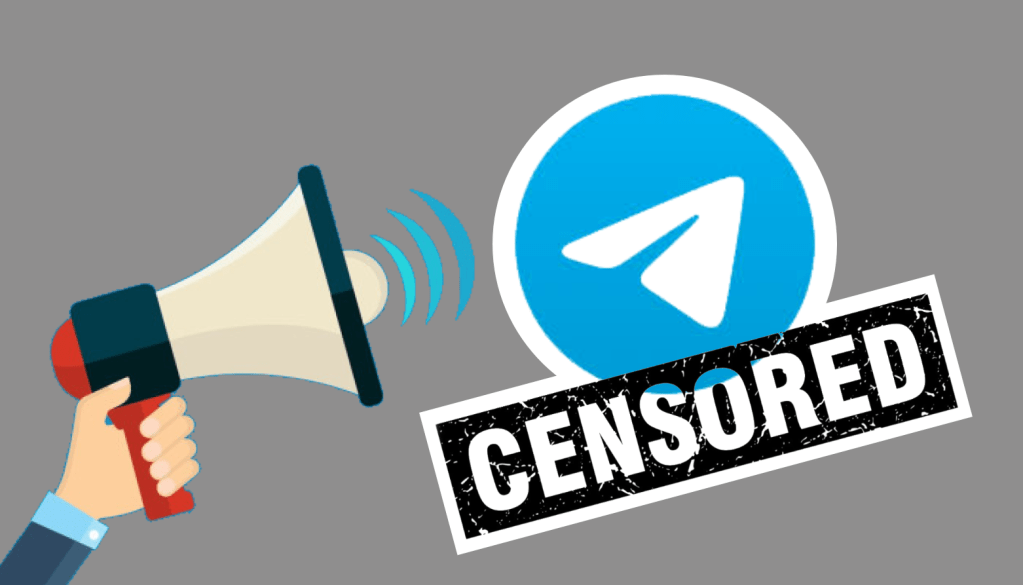RIO DE JANEIRO BRAZIL – Popular messaging app Telegram is set to be banned in Brazil following a ruling by Brazil’s Supreme Court, which said the app did not comply with local authorities when it s is to prevent the sharing of ‘harmful content’.
At least that is the official version, but few believe it.
Read also: Check out our coverage on curated alternative narratives
What qualifies as ‘harmful content’ in the eyes of the Justices remains to be seen.
Critics say that it is nothing more than a fancy word for censorship.
As a result, Telegram is likely to be removed from Apple’s App Store and other digital platforms in Brazil.

The decision comes from Justice Alexandre de Moraes, who on Friday ordered all internet service providers and digital platforms in Brazil to take action to shut down Telegram services in the country.
It is an open secret that Alexandre de Moraes, together with Justice Luis Roberto Barroso, is one of the arch-enemies of sitting President Jair Bolsonaro. Observers fear that with this measure, the flood gates will be opened for the Electoral Court (TSE) to condemn to illegality during the presidential elections all criticism, conversations, and statements offered by Bolsonarists.
The Bolsonarists stand for the freedom of the people, especially freedom of expression, against Covid-19 health tyranny, against the Covid vaccines, against compulsory vaccinations, were against mandatory masks, and are now against the condemnation of Russia.
Jair Bolsonaro is therefore profoundly hated by the establishment, most of them left-wing sympathizers, facing not only a hostile press in his own country but also a Supreme Court allied with the left, which has seized de facto government power and is doing everything it can to bring “its” candidate Lula da Silva to power in the presidential elections in October.
Telegram is the platform of choice of president Jair Bolsonaro and his supporters for mass communication. The head of state was elected in 2018 amid reports of a multimillion-dollar defamatory scheme whereby international numbers sent hundreds of millions of vitriolic messages attacking his then opponent through the app.
Brazil’s electoral court is trying everything it can to impose its official narrative by limiting and controlling the information available to the public and removing any instrument that does not comply with their demands.
ANATEL, Brazil’s communications regulator, is now asking all companies to comply with the Supreme Court’s ruling. Companies that fail to comply with the ruling will be fined R$100,000 (US$20,000) per day.
This includes Apple and Google, as both companies distribute Telegram through their app stores.
The situation escalated when the Brazilian federal police asked Telegram to remove several groups and provide data on their members a couple of months ago. However, Telegram never responded to any of these requests.
Brazilian law states that companies that provide online services in the country must comply with court orders upon request.
Supreme Court Justice Alexandre de Morais says Telegram showed “contempt for Brazilian justice” because the company had multiple opportunities to cooperate with law enforcement but never did make it.
Currently, Telegram is still operating in Brazil, but the app will likely be removed from the local internet unless Telegram decides to cooperate with the Supreme Court.
IT IS ABOUT THE PRESIDENTIAL ELECTIONS IN OCTOBER
Observers say that Brazil’s Superior Electoral Court (TSE) was already in December 2021 considering banning Telegram during the run-up to the October elections to ensure their ally leftist Luiz Inácio Lula da Silva has all the advantages necessary to win the presidential elections.
“It’s cowardice what they are trying to do,” Bolsonaro told supporters when asked about the possible banning of Telegram. “We are dealing with that,” he added at the end of January 2022.
Social media platforms were vital to Bolsonaro’s election in 2018, and the President still actively uses Twitter, WhatsApp, and Facebook, where he does a weekly live stream for supporters.
But he and his children have increasingly turned to Telegram because the app, which was born in Russia and is now based in Dubai, does not limit the size of groups or message recipients (mass messaging) and does not censor any content as most other social media do.
Telegram is a thorn in the eye of most global authorities because it does not censor any content and guarantees its users total freedom of expression.
The TSE claims there is no way to control the spread of “fake news and hate messages” in Telegram, unlike other networks cooperating with Brazilian authorities.
But the truth is, much of what is considered “preventive measures to combat fake news or disinformation” is nothing other than blatant censorship against any content that questions or criticizes the official narrative.
The TSE has partnered with almost all major social media platforms to curb what it calls “fake news and the spread of conspiracy theories” about the legitimacy of the Brazilian electoral system, Barroso said a couple of weeks in a statement.
In other words, the TSE is trying everything it can to impose its official narrative by limiting and controlling the information available to the public and removing any instrument that does not comply with their demands.

